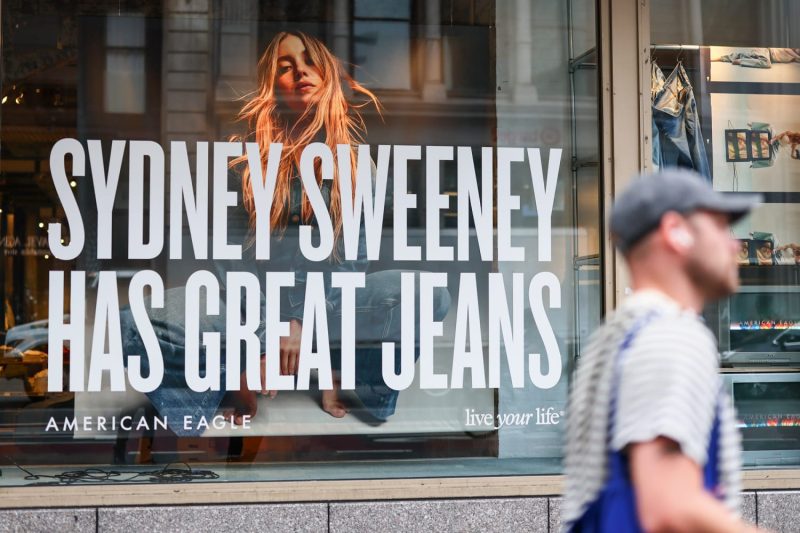From American Eagle to Swatch, brands appear to be making a lot of blunders lately.
When actress Sydney Sweeney’s jeans campaign came out last month, critics lambasted the wordplay of good “jeans” and “genes” as tone deaf with nefarious undertones.
More recently, an advert from Swiss watchmaker Swatch sparked backlash for featuring an Asian model pulling the corners of his eyes, in an offensive gesture.
Colgate-Palmolive’s ad for Sanex shower gel was banned in the U.K. for problematic suggestions about Black and white skin tones. And consumers derided Cracker Barrel’s decision to ditch its overalls-clad character for a more simplistic text-based logo as “sterile,” “soulless,” and “woke.”
Meanwhile, recent product launches from Adidas and Prada have raised allegations of cultural appropriation.
That has reignited the debate about when an ad campaign is effective and when it’s just plain offensive, as companies confront increased consumer scrutiny.
“Each brand had its own blind spot,” David Brier, brand specialist and author of “Brand intervention” and “Rich brand, poor brand” told CNBC via email.
He noted, however, that too many brands are attempting to respond to consumers with an outdated playbook.
“Modern brands are trying to navigate cultural complexity with corporate simplicity. They’re using 1950s boardroom thinking to solve 2025 human problems,” he continued.
“These aren’t sensitivity failures. They’re empathy failures. They viewed culture as something to navigate around rather than understand deeply.”
Some companies have had success in tapping into the zeitgeist — and, in some cases, seizing on other brands’ shortcomings.
Gap, for instance, this week sought to counter backlash against Sweeney’s advertisement with a campaign in which pop group Katseye lead a diverse group of dancers performing in denim against a white backdrop.
Brier said companies should consider how they can genuinely connect with consumers and be representative, rather than simply trying to avoid offense.
“No brand can afford to fake understanding. No brand can ‘committee its way’ to connection. No brand can focus-group its way to authenticity. In 2025, customers can smell the difference from a mile away,” he added.
Nevertheless, ads are meant to spark conversation, and at a time when grabbing and maintaining consumers’ attention — and share of wallet — is increasingly difficult, brands have a fine balance to tread.
“Brands live and die by standing out and grabbing attention. On top of that, iconic and culturally relevant brands want to stand for something and be recognized for it. Those are tough asks,” Jonathan A.J. Wilson, professor of brand strategy and culture at Regent’s University London.
In an age of social media and with ever more divided public opinions, landing one universal message can be difficult, Wilson noted. For as long as that remains the case, some brands may still see value in taking a calculated risk.
“It’s hard to land one universal message, and even if you try and tailor your message to various groups, others are watching,” he said.
“Controversy grabs attention and puts you at the front of people’s minds. It splits crowds and forces people to have a decision when otherwise they probably wouldn’t care. That can lead to disproportionate publicity, which could be converted into sales.”

